What is Physiotherapy?
Physiotherapy is a skilled healthcare discipline which identifies and treats issues causing pain and movement problems. Conditions can range from sports and workplace injuries to the symptoms of diseases such as arthritis, and rehabilitation after surgery.
As well as using a range of hands-on treatments, the Hands That Heal team assess and advise on aspects of our patients’ general long term health and wellbeing, such as diet and exercise.
Does Physiotherapy hurt?
Mostly not. However, depending on their condition and the kinds of treatments required, some patients may experience some discomfort after a session.
This is generally a positive sign that the physiotherapy treatment is working and their body is responding as it should. Any discomfort should not generally last more than 48 hours.
What can Physiotherapy do?
Physiotherapy can help to restore normal movement and eradicate pain resulting from illness, injury or surgery. It can also help provide stress relief and restore general wellbeing.
Practitioners have a detailed understanding of how our bodies, muscles and joints move. We can carry out a range of physical treatments and advise on health and lifestyle habits, to help us overcome problems ranging from sports injury to arthritis and work-related strain.
What Physiotherapy treatments are there?
There are many physiotherapy treatments available, including massage and soft tissue manipulation to promote healing; heat therapy to soothe and free joints; strengthening exercises aimed at improving support for injured joints, and ‘range of motion’ exercises, designed to keep them moving freely.
Physiotherapists sometimes use electrical therapy to stimulate blood flow to muscles and speed up healing. Kinesiology taping helps to improve joint stability, relieve pain, correct postural issues and improve athletic performance.
Acupuncture can also deal with a range of musculoskeletal problems, including back pain. It works by targeting some of the 500 acupuncture points within the body, and stimulating the brain to release natural pain relieving substances, called endorphins, which encourage healing.
As well as these specific treatments, we can provide invaluable advice on lifestyle changes to avoid illness and pain. This might include improving posture and gait, diet and exercises which, done regularly, will enhance mobility.
Can Physiotherapy offer treatment for Rheumatoid Arthritis?
Rheumatoid arthritis is a progressive condition in which the body’s own immune system attacks joints, weakening them and causing redness, inflammation and pain.
A physiotherapist can help you understand the impact arthritis is having on your joints. We can then carry out a range of treatments to provide relief, including ice packs for swollen and inflamed joints, soothing heat treatments, splinting joints for support, and pain relieving electrical treatments such as TENS.
As well as treating you ourselves, we can provide you with a regime of therapies and exercises for you to continue at home, to help manage the long term impact of your illness.
Can Physiotherapy offer treatment for Osteoarthritis?
Osteoarthritis causes wear and tear to the bones in your joints, restricting movement and often causing bouts of severe pain. Physiotherapists can prescribe a regime of exercise and relieving treatments, to help control the impact of this condition.
For example, we can teach you safer lifting techniques and better posture, to lessen the impact on already weakened joints. We can also recommend exercises to help keep you supple, and weight management to lessen the burden on your joints. Treatments we recommend alongside this might include ice packs to counteract pain and reduce swelling.
I suffer from back pain/back stiffness/neck pain/neck stiffness as a result of my work, what should I do?
You would benefit from visiting a physiotherapist, who would be able to review your work-related activities and help to identify the causes of your back and neck pain and how to prevent it.
For example, if you do a manual job involving lots of heavy lifting, we can recommend alternative lifting techniques to minimise the impact on your body. Or if you spend much of your working day sitting at a desk, we can assess your workstation and suggest alternative poses, new equipment and desk set-ups, exercises and regular rest regimes which will help you overcome your problem.
Of course, we can also treat the pain itself with techniques such as massage, acupuncture, ultrasound and electrical therapy, or TENS.

